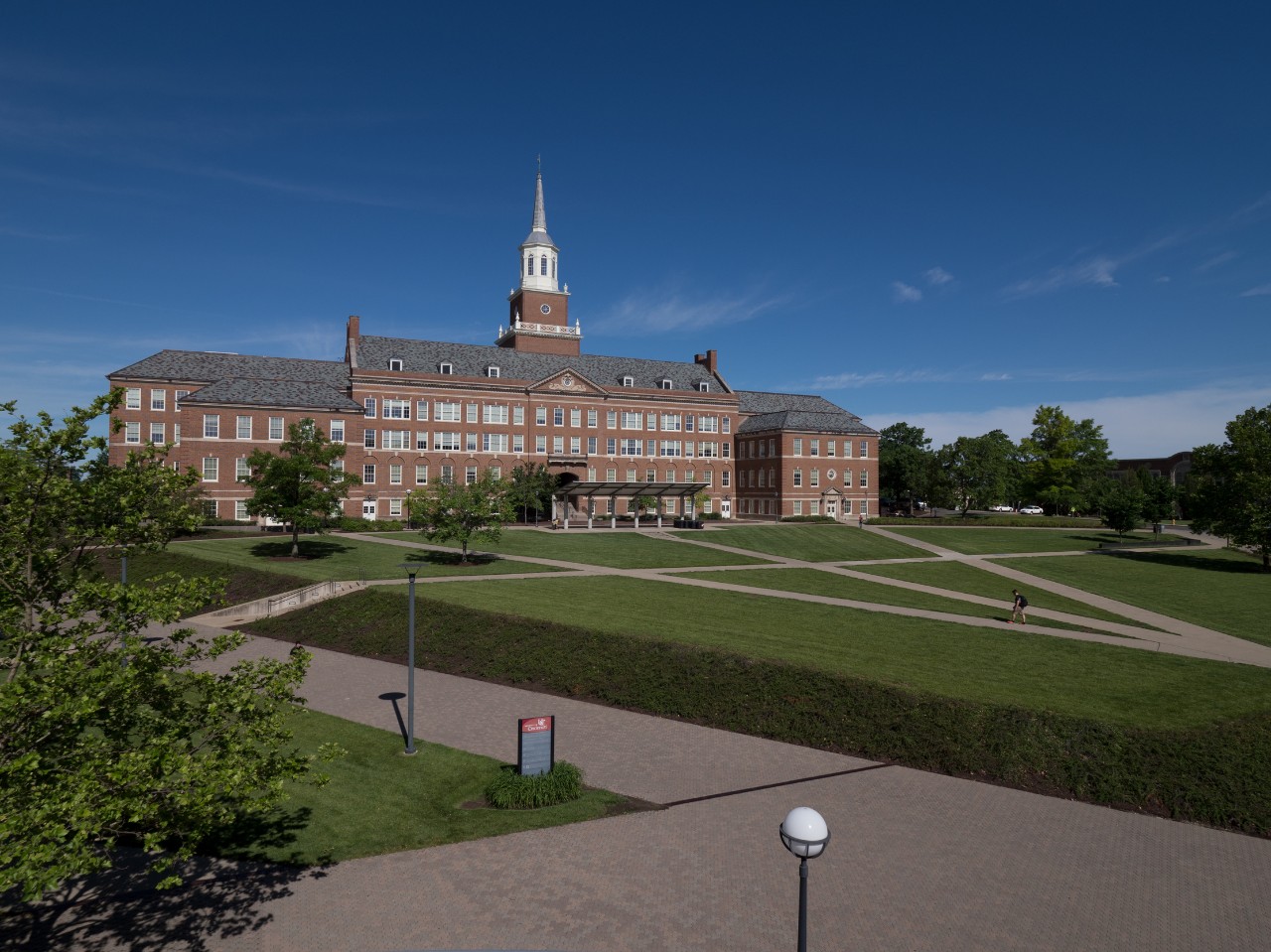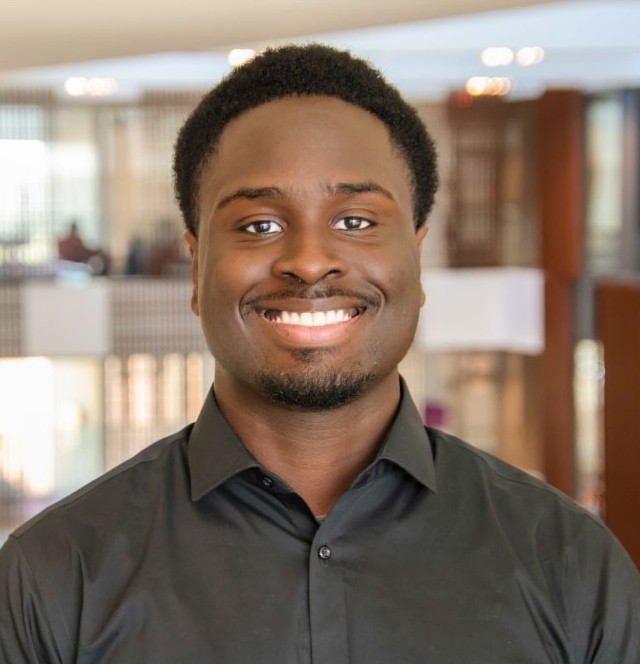
UC educators elected to distinguished national science organization
A&S professors Carlton Brett, George Uetz named AAAS fellows
Two professors from UC’s College of Arts and Sciences have been awarded fellowships in the esteemed American Association for the Advancement of Sciences (AAAS). Professor of geology Carlton Brett and biology professor George Uetz were tapped for the honor last month.
An international nonprofit organization, the AAAS was established in 1848 to promote the advancement of scientific achievement, to foster equity and inclusion for scientific excellence, and to inform public policy that serves society.
The annual Fellows Forum will be hosted this September along with a gala celebrating the 150th anniversary of the AAAS Fellowship.
Professor of geology Carlton Brett

A&S professor of geosciences and AAAS fellow Carlton Brett. Photo/Provided
In his 26 years with UC’s department of geosciences, Brett has been recognized by many scientific organizations for his research. In 2023, he received the Paleontological Society Medal by that society, and he reflects on both honors.
“In some ways, it was further icing on the cake,” he says of the AAAS fellowship. “This too is a great honor, and I am delighted to recognized not only by my peers, but also by the broader scientific community.
“I am pleased not only for myself, but also because it brings further recognition to our department. No one works as an island, and I am very proud and happy to be part of an outstanding family of colleagues and students. Ours is a very unique department: highly productive with lots of ground-breaking research in many fields; it is also a uniquely nurturing environment with a level playing field in which faculty, staff, graduates and undergraduates all work together in teaching and research.”
Brett fills multiple roles in A&S as a professor, researcher, published author and educator in the field and in the classroom.
I very much value working with students. They inspire me and keep me going in new directions.
Carlton Brett Professor of geosciences, AAAS fellow
“I practice multi-tasking in many ways,” he says. “I very much value working with students; they inspire me and keep me going in new directions. Every class and especially every field trip is an opportunity for research.”
Brett’s research involves paleontology, sedimentary geology, and relating regional and global changes in sea level, climate and the carbon cycle. Cincinnati, he says, was a particular draw for his interests.
“As a kid I read about the spectacular fossils of Cincinnati area and was excited to get to see these fantastic rocks,” he says. “I had aspirations to research and teach in one of the two meccas for paleontology: upstate New York or Cincinnati.”
He came from the University of Rochester to UC in 1998, and has been able to explore and research both regions.
“I was thrilled when a position came open and my colleagues invited me to apply,” he says. “The department had a long-standing reputation in paleontology. I would join to help achieve a critical mass and center of excellence, working on issues of deep time paleontology and stratigraphy especially of the local very famous Ordovician strata and fossils.
“Subsequently, we were ranked number eight in the country, then six, then five for paleo studies. Still are. It was a great choice to join this group.”
Professor of biological sciences George Uetz

A&S professor of biological sciences and AAAS fellow George Uetz. Photo/Provided.
Biological sciences professor George Uetz’s fascination with wolf spiders earned him the AAAS fellowship.
“It is the highest honor of my career,” Uetz said. “I have been pleased to receive a number of honors and awards, but to be recognized at the national level as an AAAS fellow is a truly great honor. I am humbled and grateful to be a recipient.”
Uetz is being honored for his research into the ecological and behavioral aspects of spiders, with a focus on social behavior of colonial web-building spiders and multimodal communication behavior in wolf spiders. Despite their small nervous systems, multimodal communication makes them “capable of integrating information from multiple sensory channels to recognize other members of their species, as well as prey, predators and competitors,” said Uetz.
Why study wolf spiders? Uetz responded: “Why not? Spiders are an integral part of natural ecosystems, because of their role as predators of insects. However, despite their ecological importance, they have been understudied and are lesser known than most other animals, and we need to fill in gaps in our knowledge.”
Uetz has served as an educator at UC for nearly 50 years in the biological sciences department. During that time, he has published multiple peer-reviewed publications and received many educational grants to further his research. He has received a number of honors and awards over his career, including the George Rieveschl Award for Distinguished Scientific Research from UC.
“I am hopeful that recognition of my work in the behavioral ecology of spiders at this level will bring more attention to the study of these fascinating creatures and encourage others to pursue arachnological research.”
Featured image at top: Arts and Sciences Hall on UC's uptown campus. Photo: UC Creative + Brand.

By Serigne Thiam
Student Journalist, A&S Department of Marketing and Communication
artscinews@ucmail.uc.edu
Related Stories
Children learn about UC science, engineering majors during visit
February 19, 2025
Students from the Clifton Area Neighborhood School visit UC to get an introduction to subjects such as science, Classics and engineering.
UC educators elected to distinguished national science organization
May 29, 2024
Two professors from UC’s College of Arts and Sciences have been awarded fellowships in the esteemed American Association for the Advancement of Sciences (AAAS). Professor of geology Carlton Brett and biology professor George Uetz were tapped for the honor in April. An international nonprofit organization, the AAAS was established in 1848 to promote the advancement of scientific achievement, to foster equity and inclusion for scientific excellence, and to inform public policy that serves society. The annual Fellows Forum will be hosted this September along with a gala celebrating the 150th anniversary of the AAAS Fellowship.
UC professors named scientific society fellows
June 7, 2024
Three University of Cincinnati professors were named to the 2023 class of American Association for the Advancement of Science Fellows, a distinguished lifetime honor within the scientific community. From UC's College of Arts and Sciences, Carlton Brett, a professor in the department of geosciences, and George Uetz, a biological sciences professor, were honored. Dionysios Dionysiou, a professor of environmental engineering in the College of Engineering and Applied Science, was honored posthumously.